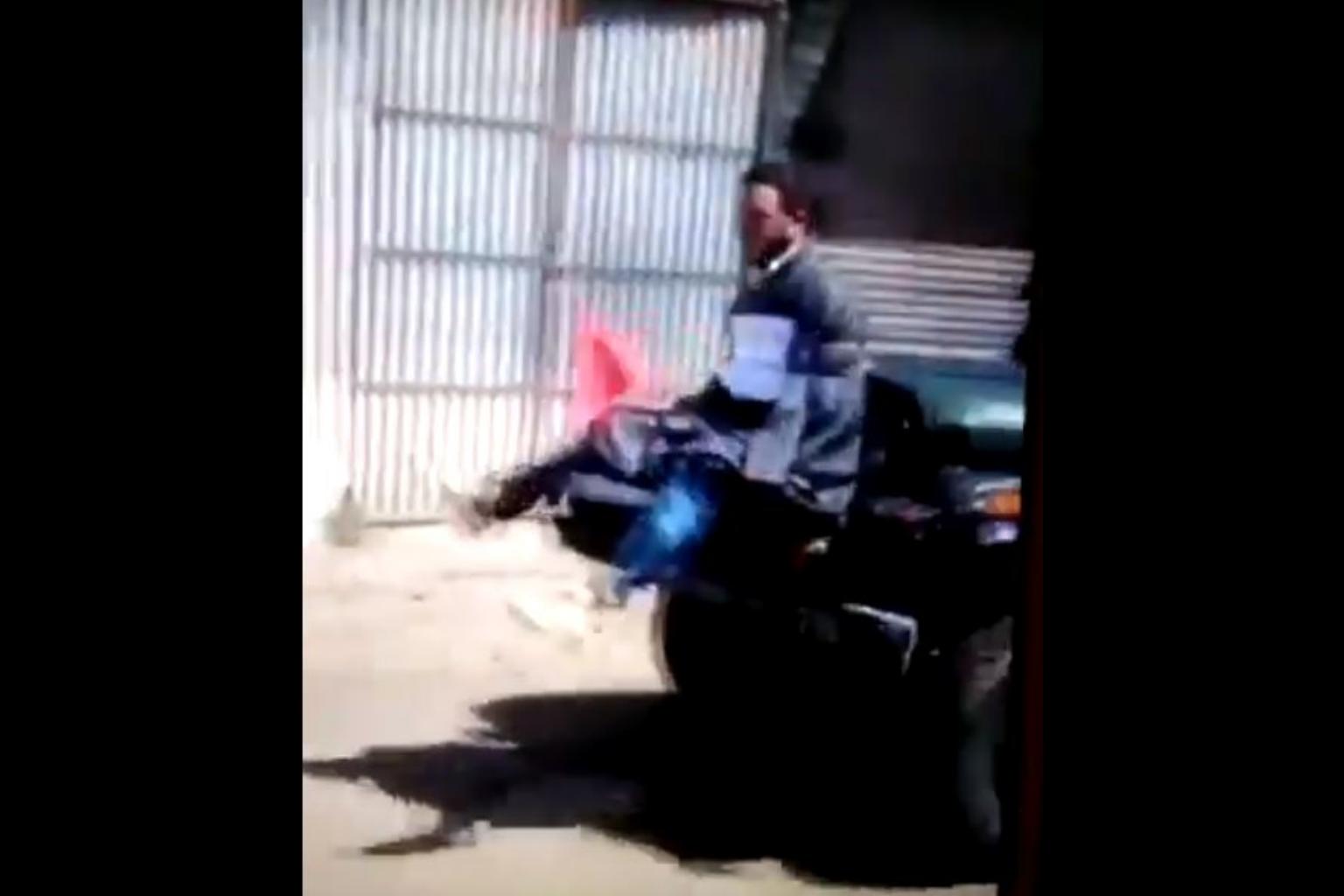Indian army commends officer who tied Kashmiri man to jeep as human shield
Sign up now: Get insights on Asia's fast-moving developments

Indian army major Leetul Gogoi, who is under a probe for strapping Kashmiri man Farooq Ahmad Dar to a jeep, has been awarded for his counter-insurgency efforts in the restive region.
PHOTO: TWITTER/OMAR ABDULLAH
NEW DELHI (AFP) - The Indian Army said on Tuesday (May 23) it has commended an officer accused of tying a Kashmiri man to a jeep and using him as a human shield, sparking outrage from rights activists.
Video footage showing Farooq Ahmad Dar bound to the front of an army jeep as it led a convoy in Indian-administered Kashmir caused a public outcry in the restive Himalayan region when it went viral last month.
The incident came at a time of heightened tensions in the divided region, one of the world's most heavily militarised spots, where anti-India sentiment runs deep.
The army said Leetul Gogoi, who is still under investigation for the jeep incident, had been given the award last week for his efforts in counter-insurgency.
"This has been given to Major Leetul Gogoi, who has been deployed in counter-insurgency operations for more than one year," army spokesman Aman Anand said by phone.
"It has been given for his sustained efforts over a period of time."
The spokesman refused to address the ongoing investigation. But an army source who asked not to be named said the probe was being finalised, adding, "Whatever indicators are emerging have been taken in consideration as well."
Kashmiri human rights activist Khurram Khurram Parvez said the award showed India could behave with "absolute impunity" in the region, where stone-throwing protesters regularly clash with troops and police.
"This reward means India upholds torture as a means of saving lives and as a part of its counter-insurgency war in Kashmir," he said.
"This is a signal to people in Kashmir that India can do anything here with absolute impunity."
Dar, who works as a weaver, has repeatedly said he had no involvement in anti-government protests and does not know why he was singled out.
His brother Ghulam Qadir called the investigation a "mockery".
"Had this kind of an incident taken place elsewhere then justice would have been done," the Indian Express daily quoted Qadir as saying.
Kashmir has been divided between India and Pakistan since the end of British rule in 1947 but both claim the territory in its entirety.
An armed insurgency has significantly weakened since its peak in the 1990s, but over the last year, there has been an upsurge in civilian protests against Indian rule.
Last year, more than 100 people died and thousands were injured in clashes between protesters and government forces, the worst violence to hit the Himalayan region since 2010.
In April, eight people were killed by police and paramilitaries during local election violence, and since then, students in Indian Kashmir have held regular and at times violent protests.


